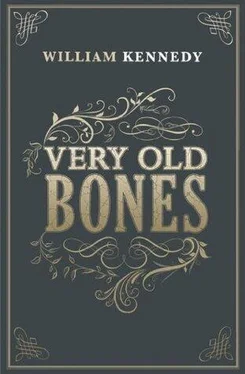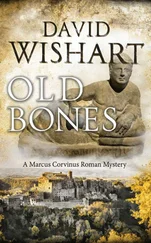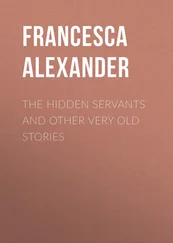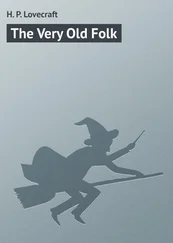“Did he ever understand how you were leading him on?”
“I wasn’t leading him on. I was trying to be equal to his dream. I’d deceive him again if it meant keeping that love alive.”
“Are you brighter than Orson?”
“Would it make any difference if I was?”
“You know something, but love isn’t what you know.”
“I know everything about love.”
“Walter and I made love in a tent the first time. He set up his pup tent in the woods one night after supper, and went out to stay in it as soon as it got dark. I went down the back stairs and met him in the spot where we watched the birds, and Walter had a flashlight. We went to his tent and he loved me and made my heart bleed with joy. . like. . holy and blessed Jesus. . like nothing else. There was never anything like that, ever before, in anybody’s life I’d ever heard about. Have you? I’d bleed every night if I knew we’d both feel like that when we were done. Wouldn’t you?”
“Yes. Maybe.”
“He never came right out and asked me to marry him. We were walking on Pearl Street one day and he says to me, ‘How’d you like to be buried with my people?’ I said I’d like that just fine. But we didn’t marry then, because I couldn’t. We married when I was able and we took a flat up in the Pine Hills, and I was never happier, ever. A year passed and Tommy fell crossing a street and broke his wrist, and Sarah got sick and couldn’t cook for Chick and him, so I went back home and ran things till Sarah could get on her feet. But she couldn’t. The doctor tried everything, but she was so weak she couldn’t get out of bed, and she wouldn’t go to the hospital. Walter got impatient with me after two months of it, me being with her more than I was with him. And we fought. He said Sarah was faking sickness to keep me there, that she never forgave me for taking his attention away from her that day on the porch. But I couldn’t believe that. Why would she ever do such a thing? Walter never meant anything to her. There was no sense to it. Walter said I should hire a woman to cook and keep house for two weeks so we could drive to Virginia to see his brother, and also break in my new car. He’d bought it for me, but I hardly drove it. It just sat in the alley on Colonie Street while I took care of Sarah. Sarah wouldn’t hear of hiring anybody, wouldn’t allow a woman in the house that wasn’t family, so I didn’t go to Virginia. Walter went with one of his friends from the school, and the friend fell asleep at the wheel and went over a ravine and they were both killed.”
“Orson didn’t die.”
“He might have.”
“No. He has things to do. With or without me.”
“I fell apart when I heard the news. I couldn’t do anything. Walter’s family took over and had his body shipped home. They were furious with me and none of his sisters even called me. They sent the undertaker to tell me where the wake would be.”
“I wonder which of us will bury the other.”
“I went in and sat for the last hour of the second night of the wake and never spoke to any of them. They were cool to me, nodded at me when I came in, and one came over and tried to talk, Lila, the youngest, who I always liked. But I didn’t say much, even to her. I just watched, and then when the undertaker came in to tell us to say good night to Walter, that he had to close up, I went and told Walter this was not good night, that we were leaving this place. Then I told his sisters, ‘I am the widow. He was my husband. I have my own undertaker, and he’s right there in the hallway.’ And there was Ben Owens, standing there with three helpers, waiting for me to tell him what to do, and I told the others, ‘I’m taking him to our home, and he’ll wake from there, and I hope none of you try to stop me, because I have a letter my lawyer got me from the courts’—I really didn’t have a letter; I made that up—‘and if you raise one finger against me I’ll have the police on you. I don’t know what you thought you were doing taking Walter, but a widow is not without her rights.’ They couldn’t believe it. They thought he was theirs. But he’d left them and married me, that’s what marriage is. And so Ben Owens put him in the coffin I bought for him and carried him out to the hearse and we went to our house and had the second wake. They didn’t come. They drove behind to make sure where we were going. They thought I was totally mad, but I was never saner in my life. And I sat up with him all night long and then at five in the morning I called Sarah to tell her what I was doing, that she could come to the church if she wanted, seven o’clock mass at St. Joseph’s, where we were married. And we had the mass, and Sarah got out of her sickbed and never went back to it, and Chick and Tommy came with her, and Peter would have too, but it was too short notice. And then we went to the cemetery, with Father Mahar saying the prayers at the grave. Us and Billy and his mother, and all the Quinns, and a few neighbors who’d heard about it were all the ones that came, but then almost nobody knew what I’d done. His family came to the cemetery and stood off to one side and nobody talked to them. And then we buried Walter in the Phelan family plot, right next door to where I’ll be buried, not with his people at all. We always had too many empty graves in our family. We always prepared for death, never for life. So I did that for him anyway.”
Giselle focuses her camera, Molly framed in her lens, the now mythical cedar waxwing cupped in her hands. Molly sits in the first rocker in a line of thirty rockers on the Lake House veranda, the rocker in the same place as when Molly first saw the waxwing fall from the tree, injured but still alive. The tree is still giving shade to the lawn, although Molly says it has lost many branches since that day nineteen years ago. Part of the tree is visible in the background of the photo (what is not visible is Tommy in his wheelchair, under the tree) about to be taken by Giselle, who is trying to record some part of the secret being of this sixty-four-year-old woman her husband loves: his aunt, if you can believe that; and Giselle is looking for a clue to what has generated this love, and what sort of love it could be, and why she is profoundly jealous of it. After all, the woman is thirty-four years older than Orson, forty years older than Giselle, a fragile and fading page of history, a woman who purports to know everything knowable about love, although she has probably known only one man and was married to him less than two years, which isn’t much more than Giselle has been married to Orson; and Giselle has known more than one man, to be sure. Not so many more, but more. Giselle sees the family resemblance between Molly and Orson and Peter and she knows that her jealousy is irrational and that Orson is not about to break any taboos, but on the matter of taboos she also knows that there is the possibility of her own dalliance with Orson’s father. The man is strong-minded, knows who he is. He’s a talent and Giselle respects that above much else. He’s taken with her as well, which she saw during the hours they spent looking for Orson in the Village bars and coffeehouses and movie theaters. In a Bleecker Street movie he took her hand, held it, told her, “Don’t worry, he can’t hide forever, we’ll find him,” and kept holding the hand as they sat in the back row looking over the audience. She had sat in back rows before, holding hands, and it was just like this, and she did not take her hand away. You carry on with a thing like that and if you’re not careful you’ll cross the line. Sitting beside Peter, she felt she understood his life as a painter, as a bohemian, for in spite of her bourgeois life she was free in the world (working for Life was not working, it was soaring), and she was pursuing her photography the way he pursued his art. They were kindred, if not kin, as Orson may be with Molly. But there is more between those two than blood. Orson says to Molly from his vantage behind Giselle, “Look at me, Moll, this way,” and Molly turns her head and when she sees him she looks again at the bird and then at the camera, and the smile is there now and Giselle captures it, that smile: the soft currency of Molly’s soul.
Читать дальше












